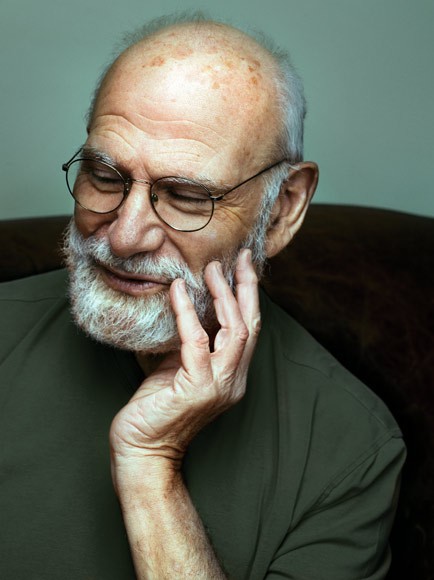
Before talking about the man and the writer, Oliver Sacks, and the book I read, I'm sharing with you the trailer of one of the movies that impressed me the most and which addresses issues such as: who we are as human beings, the incredible capacity of our brain and the power of human relationships: Awakenings, from 1990, is a film that portrays the life of a neurologist in a psychiatric hospital who discovers a substance that stimulates his catatonic patients, especially the case of patient Leonard, and what comes from this awakening. This film features fantastic performances by Robin Williams and Robert De Niro, and is based on the book with the same name, written by Oliver Sacks, inspired by a real case.
This movie shows very faithfully the closeness and empathy that Oliver Sacks, a neurologist, had with his patients, as well as the deep respect he had for everyone who approached him.

This care and sensitivity are very explicit in the book “The man who mistook his wife for a hat”, where Oliver Sacks narrates, in a charming and never critical way, the multiple cases he had throughout his professional career. He writes about people who were his patients because they had some neurologically-based disease or injury. Due to that fact, or maybe thanks to it, they also had fantastic and unique features.
In this book, Oliver Sacks does not praise these people's heroism nor does he victimize them. On the contrary: he portrays these people, who, with their particularities, have defects and virtues, reflecting on the importance of society not seeing them as people with flaws, but as whole human beings with their own unequivocal potentialities . “We paid a lot of attention to the defects of our patients – Rebecca was the first to tell me – and very little to what was intact and preserved in them” (p. 223). Throughout the various stories that he tells throughout the book, we find, among others, a woman who no longer feels her own body, an autistic person with special sensitivity to drawing, a gentleman with an exceptional memory for music, without adaptive social behaviours, or, as the title makes explicit, a teacher who mistakes his wife’s head for his hat.
This book, more than a curious set of cases, in which we peek and see the exoticism of people who are not like us, shows us the fantastic power of the human brain, its corners, its subtleties, the importance of looking at human beings as human beings, with their own narratives and life stories, skills and aptitudes. Oliver Sacks shows us, in a profoundly generous way, how we all are more than our circumstances, and that with the right support and empathy we can all find a place in the world, a place where we are ourselves, and, who knows, happy.
Oliver Sacks was British. He was born in 1933 and died in 2015, aged 82. He was a neurologist and psychiatrist, as well as a prolific writer. The importance of human relationships, and the role not only of science, but also of art for the quality of life of his patients were always at the base of his work .
Some works by the author published by Relógio de Água.

